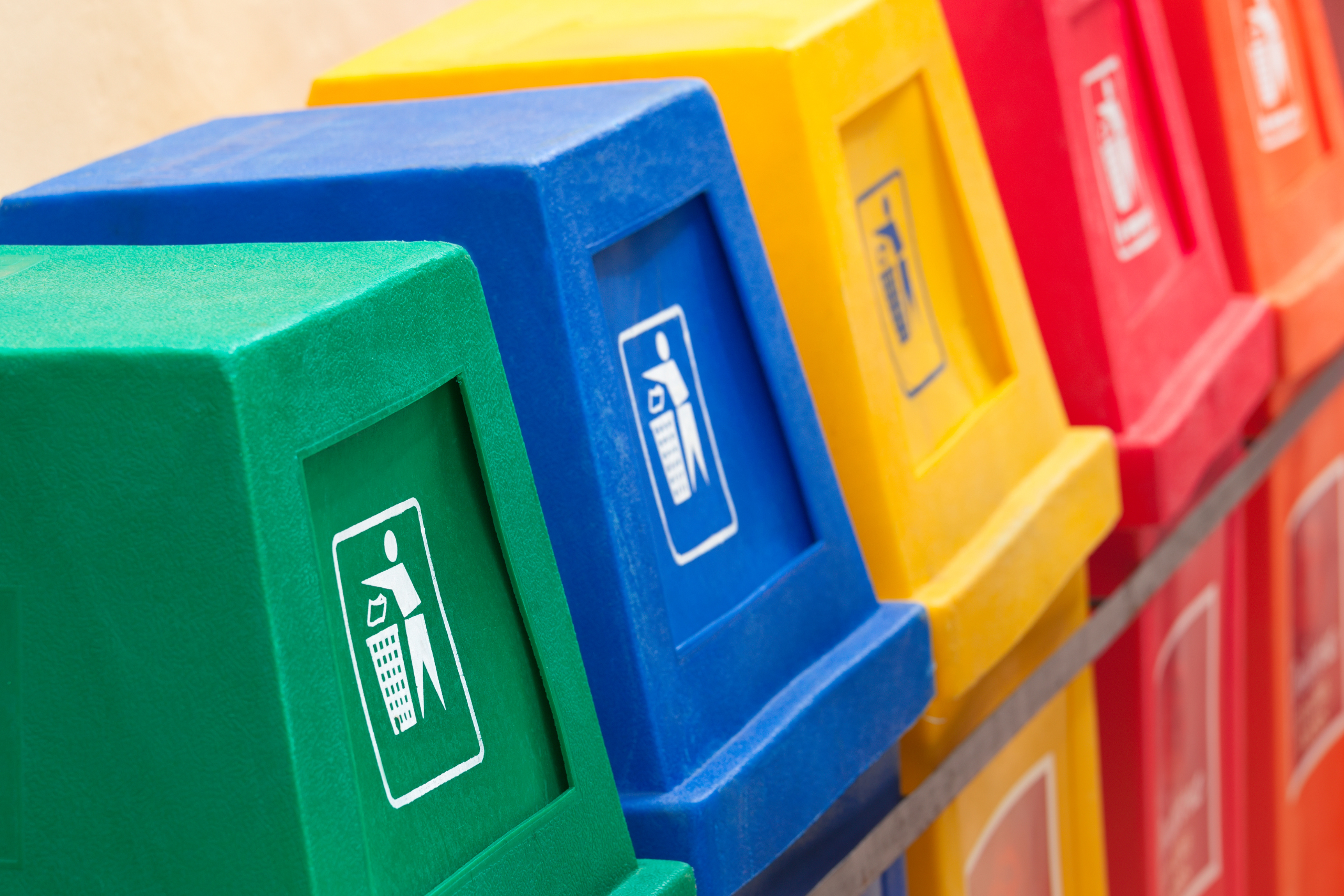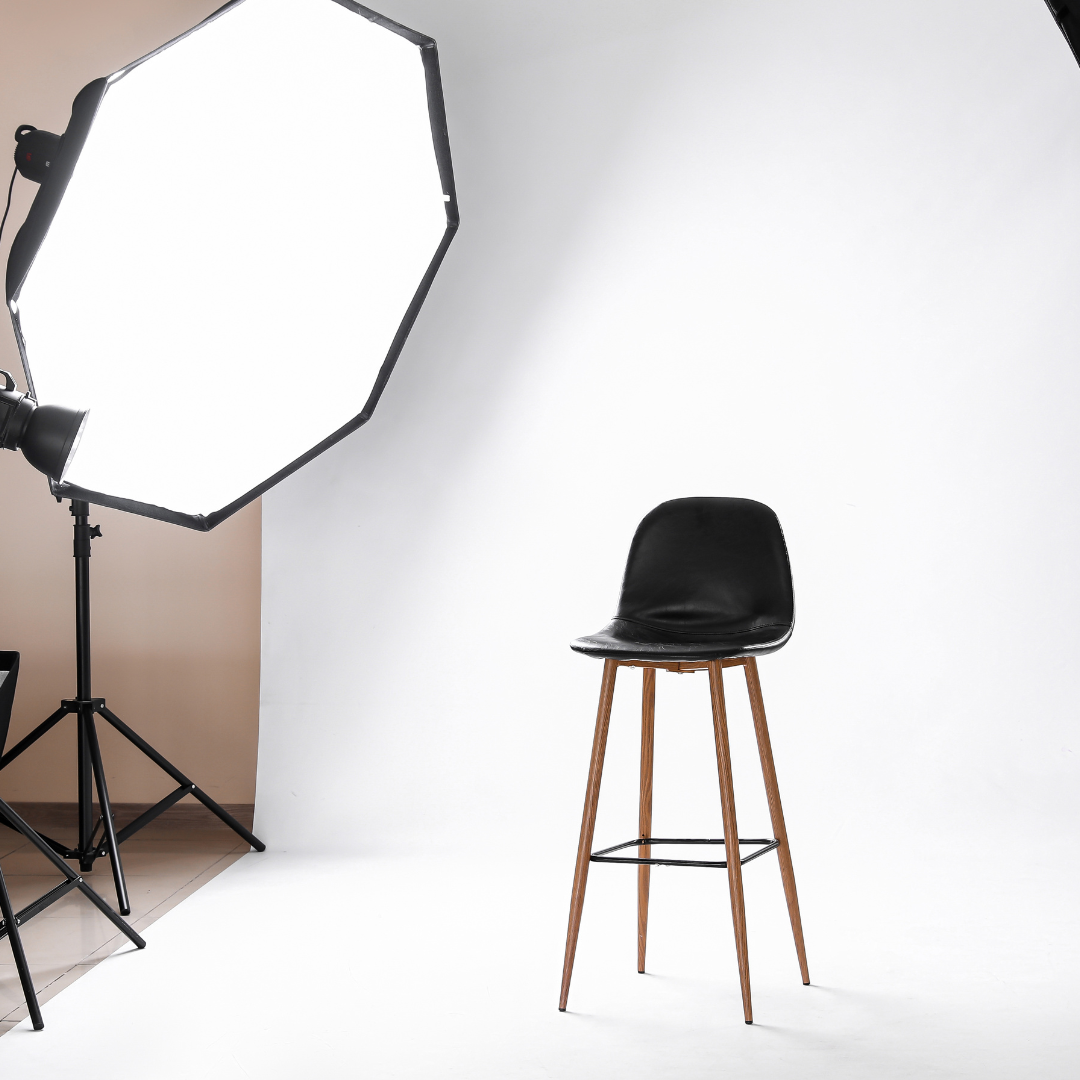There’s a bustle of activity in the back room of the Vancouver Habitat Store. Staff and volunteers sort and price donations while keeping one eye trained on the driveway where donors drop off loads of reusable goods like furniture, lamps, sinks and toilets, a vase or maybe a box of dishes and a food processor. Most of these items will be priced and put out on the sales floor, but not all. There is other activity going on back there that is also very profitable for our stores: metal recycling.
After 30 years in military service, active-duty Air Force and then the Oregon National Guard, Stuart Mathew was determined to keep himself productively busy when he retired last year. He found that place volunteering at the Vancouver Habitat Store.
“I like the mission, what they do, trying to get people homes which is really a foundation of a person’s family – it’s important,” he said.
Stuart stands next to an arrangement of large barrels filled with sorted scraps of various metals: yellow brass, copper, aluminum and iron.
“I work in the metal recycling area, there are about seven of us, ” he says. “We take anything that is not sellable on the floor and disassemble it, take it apart into like types of materials – whether it’s brass or aluminum – and then we put the iron in the iron bin.”
In his thickly gloved hands Stuart holds a bundle of 12-guage wire, the kind used to wire outlets in any home. With pliers, he brusquely peels back the outer sheets revealing the copper inside. (This is the way, for you “Mandalorian” fans.)
He peers inside a huge bin filled with discarded and broken garbage disposals, ceiling fans, doorknobs, door handles, cables and light fixtures. There is hidden value in many of these items we can’t sell at our stores.
“In the 80s we used to have these yellow brass chandeliers with glass panes in them,” Stuart says. “We’ve gotten some that are probably multiple hundred dollars when they were new 30 or 40 years ago – two and a half feet tall. I mean it was spectacular. Well, no one wants to buy them, and so those are the things that it kind of breaks your heart to tear them apart and recycle them. But if we don’t do it, they could end up in a landfill.”
If a porcelain sink doesn’t sell, the team will harvest the yellow brass fixtures for recycling. But Stuart admits that taking a lot of plastic off an object to get down to the scrap of metal inside is often too labor intensive to pursue.
“Sometimes the biggest challenge is understanding what some of the metals are, how to separate them because there are different pieces and shapes,” he explains.
When he’s puzzled, Stuart relies on his mentor, Rich Reiter, who has been recycling metal for the Habitat Store since 2011. (Rich’s video on metal recycling is linked below.)
“I grew up on a farm, so I always enjoyed working and building things,” explained Stuart. “But here we don’t worry about the labor, so sometimes we use brute force, other times we try to figure out how it was constructed so deconstructing is an easy method.”
All this deconstructing and sorting earned the Habitat Store alone about $44,000 in 2019. In 2019, the four ReStores together earned $148,557 from metal and paint recycling. It’s cash for things that would ordinarily be dumped. Here it can help build Habitat for Humanity homes.
“I think that the metal recycling program enables us to be the best stewards of what is donated to us, even when we find that a donation is not re-sellable,” said Angela Sims, manager of the Vancouver Habitat Store. “While we try to only take items that are in good condition, sometimes the useful life of an item can be unexpectedly short. The metal recycling program allows us to still find the good parts of something that is not usually valuable.”
Stuart has been volunteering at the Vancouver Habitat Store for about a year.
“It’s difficult to volunteer for the first little bit because you don’t know where you fit in,” he shared. “So, you’re kind of having to ask a lot of questions. I’m a little bit timid. But once you’re here for a while you find your place and then it becomes second nature. You show up, you know what to do, you don’t have to worry about feeling like you’re an outsider. I love working here because people are friendly and, like I said, everybody is doing good work for a very good cause.”
Besides in metal recycling, ReStores in Portland, Beaverton, Gresham and Vancouver rely on volunteers for help processing donations, merchandising, cashiering, and customer service. Volunteers also assist with donation pickups and deconstructing kitchens and other sites with our Salvage Service team. There’s is so much to do, and there’s a huge need for the homes that can be built as a result of ReStore revenue.
Want to pitch in like Stuart? Go to pdxrestore.org to find out more about becoming a volunteer.
MORE FROM STUART:
– “Cordless drills are indispensable.”
– Stuart loves to garden. “I try to do more vegetable gardening, and my wife tells me what to do with the rest of the yard.”
– “After I retired, I built a small 8×8 greenhouse, and I get to play with that in the winter.”
– “Last summer our Covid project was building an outdoor barbeque on our patio.”
RELATED CONTENT
LEARN MORE: BECOME A RESTORE VOLUNTEER
DONATE: GUIDELINES, LOCATIONS AND SCHEDULING A PICKUP
Six easy pieces: The Rich world of metal recycling
WATCH: PDX RESTORE HOW TO’S: METAL RECYCLING



